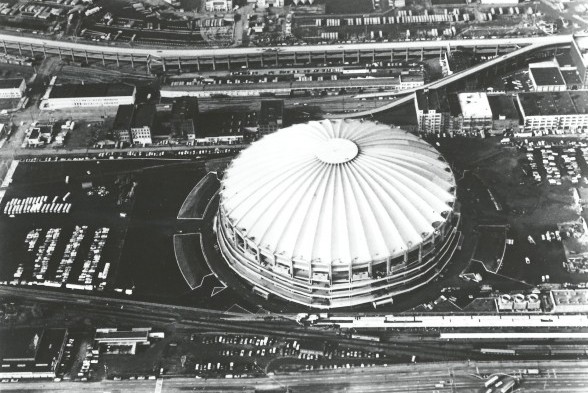
By David Eskenazi and Steve Rudman
As Sportspress Northwest reported last week, the Seahawks have submitted preliminary paperwork to host a future Super Bowl. Before the Seahawks form a host committee to prepare a bid, they must receive acknowledgement from the NFL that a Seattle overture would be welcome and given consideration.
If history is any indication, the NFL will bless a Seattle bid, which would be the citys ninth. The question then becomes whether the NFL will take No. 9 any more seriously than it took the first eight, all of which ended on scrap heaps 12 years in the making.
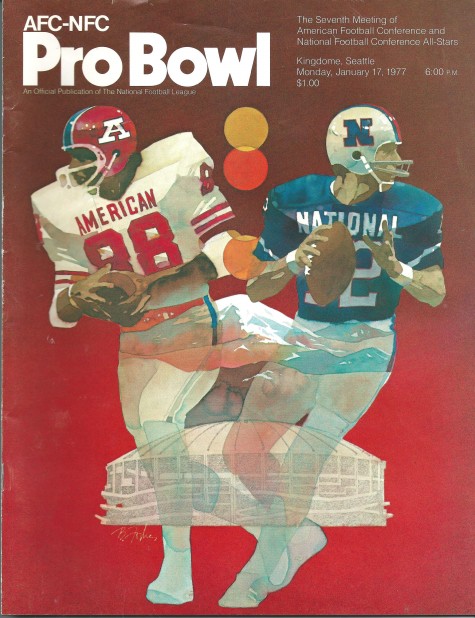
Seattle Professional Football Inc., original owners of the Seahawks, had been incorporated only four years when, on Feb. 7, 1977, Hartley Kruger, a one-time University of Idaho forward who later played for the Northwest AAU Buchan Bakers (see Wayback Machine: A Bakery That Cooked Up Basketball), announced that the Seahawks would bid for the 1979 and 1980 Super Bowls at the NFL owners meeting the following spring.
Vice-president of the Seattle-King County Convention and Visitor’s Bureau, Kruger cited two reasons he considered Seattle a worthy candidate. The first had been the impressive community support Seattle had accorded the Jan. 17, 1977 Pro Bowl at the Kingdome, which attracted 64,752. The second, Krueger said, was his belief that Seattle featured excellent out-of-weather facilities as selling points for luring the game.
Unfortunately for Kruger and the Seattle Host Committee, they couldnt overcome several NFL objections, mainly that the Kingdome had 20,000 fewer seats (64,000+) than what the league preferred (80,000+), which meant that, to compensate, tickets would have to be priced at what the the league considered unacceptably high levels.
The NFL also objected that Seattle could not offer separate indoor training facilities for the participating teams, and that the January weather in Seattle reminded no member of the NFL Site Selection Committee of South Beach or Venice Beach.
All of the presentations (by Seattle, Houston, Los Angeles, New Orleans, Dallas and Pontiac, MI.) were exceptionally professional, said NFL Commissioner Pete Rozelle, who awarded the 1979 game (XIII) to Miami and the 1980 game (XIV) to Pasadena.
Well, it didnt hurt to try, opined The Seattle Times after Seattles $100,000 bid went up in smoke.
Two years later, the Kingdome sprouted no new seats, and Seattles January weather patterns had not taken any turns for the better when Krueger and the Host Committee returned, hoping for a different result when the league accepted pitches for the 1983 Super Bowl.
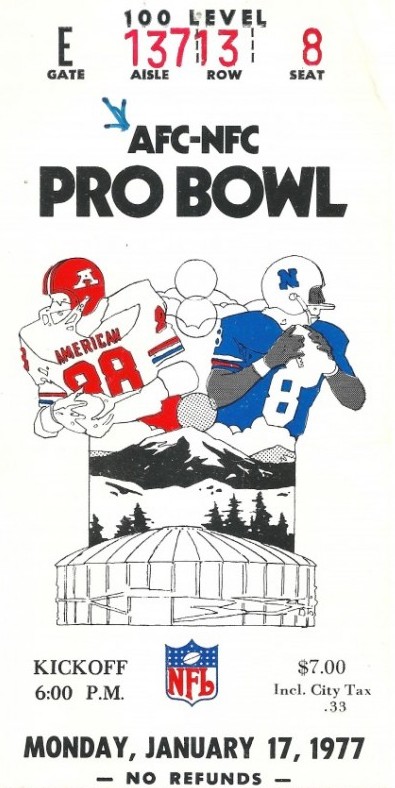
The Host Committee wanted to pitch for either the 1981 or 1982 Super Bowls, but decided not to for two reasons: Seattle lacked the required hotel space, and the committee wanted to see how a 1982 Super Bowl bid by Pontiac, a suburb of Detroit, the first by a northern-tier city, played out.
Two (hotel) properties will be completed by 1982, which will give us sufficient rooms, Krueger explained. With those rooms, we feel we have a great deal to offer if they (NFL) decide to grant a northern city the opportunity to host a Super Bowl. We also have cooperative agreements with the city, county and state. Everything the NFL will need to conduct a successful Super Bowl is available in Seattle.
The Host Committee felt it had a compelling rebuttal to the NFLs objection to Kingdome capacity.
We have suggested live TV coverage in the Seattle Coliseum, for which we could sell tickets for a closed-circuit telecast, Kruger said. The Coliseum would hold up to 20,000 for such a TV showing, which would add revenue.
Although the committee felt emboldened when the Pontiac Silverdome received the 1982 game, which meant NFL owners were open to playing in northern cities, the NFL awarded the 1983 game (XVII) to Pasadena for the second time in four years. That came as no shock: The NFL would not award a northern city consecutive Super Bowls.
In January 1981, an NFL official told the Seattle Times that, although the league considered the Kingdome extremely borderline as a Super Bowl venue, the league would entertain a future Seattle bid.
Seattle is certainly not closed out, insisted NFL executive director Don Weiss, who said the league would be pleased if Kingdome capacity increased from 64,000+ to 67,000+, and that the new hotels that would add 3,000 rooms to the downtown corridor certainly bolstered Seattle’s case.
A 70,000 minimum (seats) is not an absolute, added Weiss. “But below 70,000 is extremely borderline (the smallest stadium to host the Super Bowl had been Rice Stadium in Houston, which had a 71,000 capacity for Super Bowl VIII). The problem is that you just cant begin to meet the requests for seats. That (increased Kingdome seating capacity) would still be about 35,000 less than the Rose Bowl.
Were always interested in new locations. Our position is that the Kingdome is certainly welcome to make a presentation. Theyre not closed out. But we want to be as candid as possible. There are negatives. One is stadium size, but you weigh that against the plus of controlled weather.
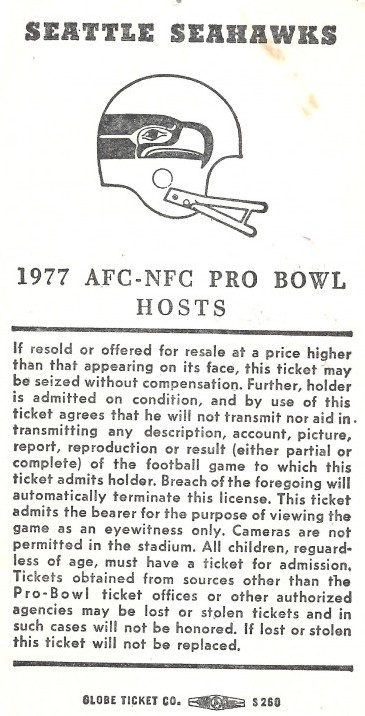
Weiss offered another negative: While Seattle could offer participating teams their choice of three practice sites, all — the University Washington, Memorial Stadium and the Seahawks complex in Kirkland — were outdoors, bringing bad January weather into play.
After failing to land the 1983 Super Bowl, Seattle backed off on a bid for the 1984 game, Kingdome public relations director Bill Sears telling reporters, We dont know if well bid again. We dont want to waste the taxpayers money unless were a viable candidate.
Acknowledging Kingdome seating limitations, Sears said, We think we meet every other guideline. If were told that were viable candidates, well go there with a thoroughly professional presentation.
Encouraged by the NFL, Seattle came back in May 1982 with bids on the 1985 and 1986 Super Bowls, and thought it had sufficient ammunition to knock down the Kingdome capacity issue after an unprecedented concession by the owners of the Seahawks.
They voted to relinquish the 10 percent Super Bowl ticket allotment given to the host franchise, which meant the NFL would get all 69,000 game tickets instead of the 62,100 it would have received if the Seahawks hadnt ceded their 10 percent.
We feel in evaluating all the ingredients, we now have a 50-50 chance and maybe even better, said Sears. I think the reason were so optimistic now is that we meet every qualification and every stipulation that the NFL has made of us.
But Seahawks general manager John Thompson, once executive director of the NFL Management Council, said he wasnt so certain.
I really dont know, said Thompson. I wouldnt know how to assess it. I know there are 12 cities in contention. Ive been told we have as good a shot as anyone if we make this concession. Our owners unanimously endorsed the effort. The message from Ted Bowsfield (Kingdome manager) was that, because of the marginal size of the stadium, and with the normal allotment of host-city tickets, our chances to get the Super Bowl would be minimal.
“But with the concessions he asked us to make, I think we have a good shot at it. Were very hopeful it will do the trick. Its a sacrifice by our season ticket holders, but if we dont do it, there obviously would be no game anyway. The game would be a big boon to our economy.
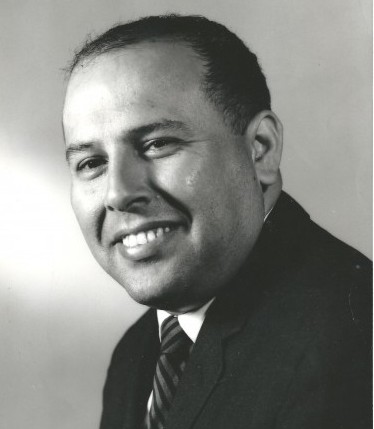
The NFL had scant interest in awarding Seattle either the 1985 or 1986 Super Bowl until hearing about about the ticket waiver.
There is no doubt about it, we got their attention in a hurry, said King County Executive Randy Revelle. Make no mistake: bidding for a Super Bowl is like trying to lure the National Republican or Democratic conventions. You have to make concessions if you are going to get the bid. We still have hurdles to cross, but I now think we are really in the competition for the Super Bowl.
At the NFL meetings in New York in June 1982, a Seattle contingent of Revelle, Bowsfield, Sears, Seahawks owner Elmer Nordstrom, Seattle Mayor Charles Royer and Rep. Norm Dicks presented Seattles case, highlighting it with a short film narrated by Pro Football Hall of Famer Hugh McElhenny.
I think the presentation went very well, said Royer. I think we proved Seattle can handle a Super Bowl, and we have a good shot at 1985 or 1986.
Without explanation to any Seattle official, the 1985 Super Bowl went to Stanford, CA., and the 1986 game to New Orleans.
Seattle licked its wounds for a year and came back in 1984 once more encouraged by the NFL — with bids for the 1987 and 1988 Super Bowls. In addition to again offering to cede the host team’s ticket allotment, the Seattle bid committee sweetened its pitch by guaranteeing to install an additional 6,500 seats in the Kingdome and by using private funds to pay the rental fees on the practice facilities used by the participating teams.
Seattle presented its case to the NFL in Washington, D.C. This one cost $2.5 million, $2.4 million more than Seattles initial Super Bowl bid in 1977.
But after a day-long session, NFL owners forsook Seattles leaden skies for the sunshine of California, awarding the 1987 Super Bowl to Pasadena and the 1988 extravaganza to San Diego.
This blows my mind, said Ravelle, who led the effort to sell Seattle and the Kingdome to the NFL, and who speculated that Pasadena was selected because of powerful owners who wanted it, and because the stadium holds 100,000 people. There was, Ravelle added, another factor: sunshine.
Ravelle and the Seattle contingent sought to find how well Seattle did or didnt do with its presentation so that it could amend if and when they mounted another Super Bowl bid. But Rozelle refused to utter a word on the subject, saying that information, and all voting totals, were secret.
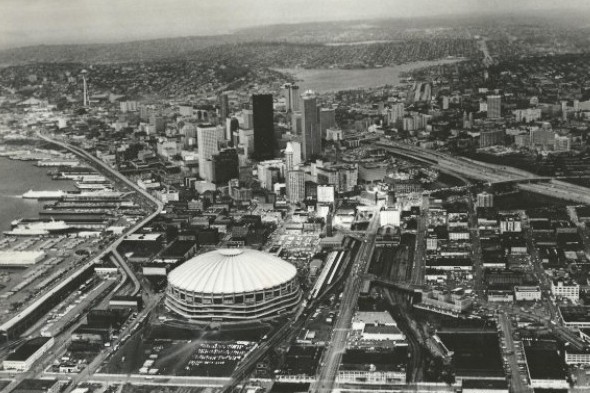
Gene Pfeifer, vice president of Pacific Northwest Bell and one of the newer representatives on the Host Committee, said Seattle was not out of the running completely. Hope remained, he said, for the 1989 and 1990 Super Bowls.
But when asked how good Seattle’s chances really were, Pfeifer said, I dont think you would want to bet the farm on it.
Sufficiently chastened by getting the door slammed again, Seattle did not pursue another Super Bowl until 1987, this time seeking the 1992 game which was promised to a northern city. The candidates: Seattle, Minneapolis and Detroit.
Although Indianapolis and Kansas City also qualified as northern-tier candidates, Indy was not considered a serious contender because it had been in the league for only three years, and NFL owners harbored genuine disregard for the Colts’ owner, Robert Irsay. Kansas City played in an uncovered Arrowhead Stadium.
As Seattle prepared its 1992 bid, to be made in the spring of 1989, the complexion of Seattles Host Committee changed, mainly by the addition of Bob Walsh, whose company, Bob Walsh and Associates, had orchestrated the 1984 NCAA Final Four to rave reviews. The tournament had gone so well that Seattle had already been awarded a second Final Four, in 1989.
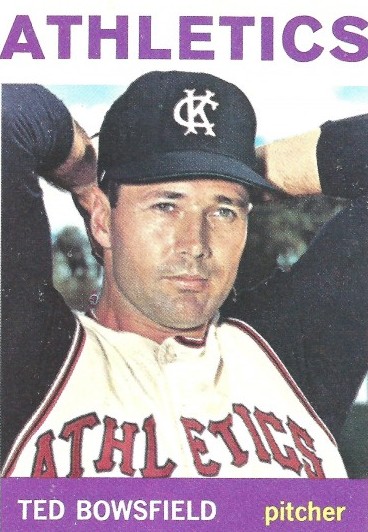
Borrowing from what had worked at the 1984 Final Four, the Seattle Host Committee prepared a beefed-up bid that included a Kingdome expansion to 71,000 seats and the promise of ferry boat parties and floating hotels on Puget Sound to enhance the NFL’s experience in Seattle.
While weather had been a negative in Seattle’s previous Super Bowl bids, this time it was considered a benefit: Seattle enjoyed more moderate winters than any of the competing cities.
Without that (northern tier rule), we probably wouldnt have a chance, John Nordstrom, managing general partner of the Seahawks, told the Seattle Post Intelligencer. But the NFL is still concerned about the size of the Kingdome, very concerned.
“Even when we said wed expand it to more than 71,000 they were concerned. Thats the bad news. The good news is that Minnesota is just as cold as Michigan.” (One enterprising member of Seattle’s Host Committee clipped, and sent to the NFL’s Site Selection Committee, the printed fact that Minnesota sometimes gets too cold for the dead to be buried.)
To further counter any other negatives, the Host Committee offered the NFL free Kingdome rent and a waiver on admission taxes and associated event costs on game day. The committee promised a $100,000 cash donation to NFL-chosen charities and a rent-free facility for Pete Rozelles annual Super Bowl party.
That wasn’t all. The committee offered free hotel suites, complimentary transportation and limo service, the use of 35 Mercedes, and free practice sites for the competing teams. On top of that, the committee tempted the NFL with seven parties to be held aboard ferry boats at a cost of $87,000, and jumbo Alaskan ferries and cruise ships to be used for parties and extra hotel space.
Seattle’s bid included $1.5 million for a contingency fund to defray any other NFL costs. But the NFL declined that sum, which forced a minor bid restructure by the Host Committee. Rozelle said he wanted to avoid the appearance of cities attempting to buy the Super Bowl which, of course, every candidate city tried to do.
With this package, Seattle thought it had the Super Bowl all but nailed. In addition, the Seahawks had now been a league member for 14 years, a playing member for 12, and had built up goodwill and political connections throughout the league. Plus, few owners enjoyed more respect than the Nordstroms (John Nordstrom was so popular that even Al Davis, the cantankerous obstructionist who owned the Oakland Raiders, would speak pleasantly to him).
In numerous conversations with NFL officials, the Seattle Host Committee had been assured of success, especially after a spectacular presentation to the Site Selection Committee that included actor John Houseman, the taciturn law professor of “The Paper Chase” TV series, extolling Seattles case on video. Several NFL officials told Seattle Host Committee members that it had made — by far — the best pitch.
Seattle’s bid had cost between $5-6 million. Seahawks president Mike McCormack was so confident that he estimated Seattle’s chances at “better than 80 percent.”
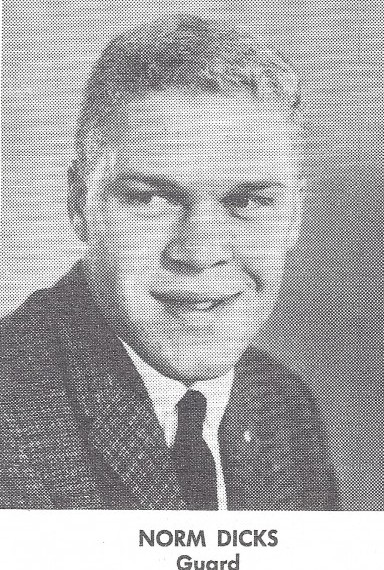
But two issues had come into play. First, the Nordstroms had sold the Seahawks to California real estate developer Ken Behring the previous fall, and Behring, with King County Executive Tim Hill and Chamber of Commerce president George Duff, formed a second, or rival, Host Committee, headed by businessman John Getzelman. Behring, who now called the shots as team owner, wanted to boast that he had secured a Super Bowl.
In March, 1989, Behring threw a party at his home for NFL owners, making it a combination get-acquainted affair and lobbying effort for the Super Bowl.
“If I were Behring, I’d enlist the Nordstroms to help,” one owner told the Seattle Post-Intelligencer. “John Nordstrom is well respected, and getting the Super Bowl is somewhat of a political football. Nordstrom may have some chips he could call in; Behring doesn’t have any. There are a lot of political favors involving governors and senators that are a factor.”
The biggest factor became Behring himself. His fellow owners couldn’t stand him any more than they could tolerate Irsay. Behring ultimately sought Nordstrom’s help only on a limited consulting basis. When the verdict came down, NFL owners, meeting in New Orleans, handed the 1992 Super Bowl, worth $170 million, to Minneapolis, the candidate city with the worst winter weather and smallest stadium.
Asked why Minneapolis got the game, when its financial package ($4.5 million) was less than Seattle’s and its stadium size (70,000 at the Hubert H. Humphrey Dome) roughly equivalent to Seattle’s, Philadelphia Eagles owner Norman Braman, chairman of the NFL’s Site Selection Committee, said, “It’s very accessible; it’s easy for a lot of fans to drive to.”
New Orleans Saints president Jim Finks explained that the Vikings had long history of contributions to the NFL, and that those contributions “should be rewarded.”
Added Irsay: “Everyone was cutting a lot of deals.” What Irsay didn’t add, but could have, was that Seattle — mainly Behring — had no deals to cut or chips to cash, on top of the fact his fellow owners couldn’t stand him.
“I think we put together the best deal possible,” said Getzelman. “I’m just sorry we didn’t bring home the trophy.”
The Seattle Host Committee got a worse surprise when it discovered that it had not only by beaten by Minneapolis, but that NFL owners had eliminated Seattle on the first ballot, meaning Seattle had finished fourth in a four-city competition.
“It doesn’t take a genius to figure out what happened,” Seahawks’ general manager Tom Flores told the P-I. “The Super Bowl was not decided by merit. It was decided by cronyism.”
This my swan song, Ive had it, said Sears, who had assisted with Super Bowl bids since the late 1970s (see Wayback Machine: Bill Sears And A Life Well Lived). My attitude is that its like being engaged for 12 years, and then youre jilted. One of the key owners told our people that he was embarrassed, and rightfully so. They (Minneapolis) didnt meet the criteria.
For example, Sears pointed out, the NFL Site Selection Committee’s standards included a headquarters hotel with at least 650 rooms. Minneapolis lacked a hotel that big, so they combined two hotels and called that the headquarters, Sears said.
The Kingdome, Sears added, would have provided 6,000 more seats than the 70,000 promised with temporary changes in the Metrodome, and Seattle had more hotel rooms to offer than any bidder. In terms of the selection committees criteria, our bottom line was better than anybody elses, and it just didnt fly, Sears said.
Said Frank Finneran, vice chair of the Seattle Host Committee: “I don’t see how we can justify doing this again. This was the swan song for Northern cities.”
Except that it wasn’t. So Seattle will bid again, for the ninth time. This time, the bid might run as high as $10 million.
———————————————
Many of the historic images published on Sportspress Northwest are provided by resident Northwest sports history aficionado David Eskenazi. Check out Davids Wayback Machine Archive. David can be reached at (206) 441-1900, or at seattlesportshistory@gmail.com

2 Comments
Man, what’s with Seattle’s bad karma with our arenas and stadiums? Maybe those stories of the Dome being built on ancient native burial grounds are true!
Man, what’s with Seattle’s bad karma with our arenas and stadiums? Maybe those stories of the Dome being built on ancient native burial grounds are true!